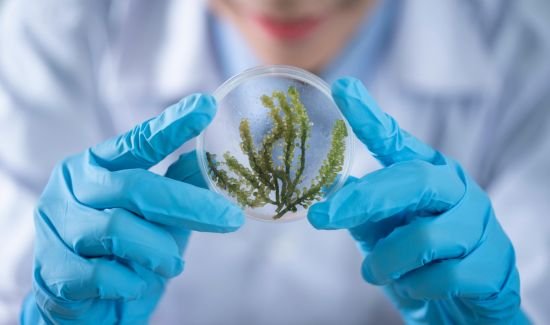Vitamin B12, also called cobalamin, assumes a critical part in maintaining sound nerve cells, duplicating DNA, and supporting red blood cell production. While nutrients and minerals are frequently connected with vegetables and fruits, vitamin B12 is a unique supplement with limited availability in plant-based food sources. Understanding the role of fruit products in a vitamin B12-rich diet can assist with advancing better health and nourishment. Unlike different nutrients, B12 is tracked down in animal-based food sources. This has prompted misconceptions about whether vitamin B12 fruits are there or not, particularly among vegans and vegetarians. This article tells us about fruits and different alternative food sources to keep up the optimal levels of B12 in your diet.
Functions of vitamin B12
Vitamin B12 is an essentially required water-soluble vitamin of the body. It regulates various physiological functions.
1. Red blood cell production: Vitamin B12 is essentially required to maintain healthy levels of RBCs and Hb production. Thus, preventing iron deficiency.
2. Nervous system support: It maintains neuron function by the formation of myelin sheath, a protective cover around nerve cells.
3. DNA synthesis: B12 is required for DNA replication and DNA repair, to carry out cell division.
4. Mood regulation: It helps in mood regulation. Satisfactory B12 levels are connected to improving moods, mental capability, and the reduction of cognitive decline and memory loss.
A lack of B12 can prompt weakness, numbness, melancholy, stress, nerve impairment, and anemia. Therefore, sufficient admission of vitamin B12 is basic for general well-being. According to a research data analysis of NHANES from 2007-2018, 3.6% of adults between the ages of 19 and above lack vitamin B12, and the rate is 3.7% for persons above 60 years.
Can fruits provide vitamin B12?
The most asked question to researchers or the scientific community regarding vitamin B12 fruits. Can fruits provide us with vitamin B12 or not? The short response is NO — fruits don’t contain vitamin B12 in them. In comparison to other nutrients (like vitamin C and folic acid) that are enriched in fruits, B12 is only available from animal-based food sources like meat, dairy, seafood, and eggs. Because B12 is manufactured by microbes in animal tissues, during the fermentation process.
Alternative B12 sources for vegans or vegetarians
Since fruits cannot provide a sufficient amount of vitamin B12, it becomes fundamental for veggie lovers, vegetarians, and those with restricted animal-based diet utilization to track down alternative sources to overcome their B12 level. A few suitable sources include:
1. Fortified foods
Food that has additional supplements added to it or has supplements that are not naturally there are called fortified foods. Many plant-based items are fortified with B12 to address the consumer needs who do not prefer animal food products. It includes:
· Fortified plant-based milk (almond, soy, or oat milk)
· Breakfast cereals
· Nourishing yeast
These food varieties give a helpful method for integrating B12 into a plant-based diet. Looking at food labels for the presence of added B12 can assist with guaranteeing adequate vitamin intake.
2. Supplements
B12 supplements are one of the most reliable ways to guarantee satisfactory intake, particularly for people who stay away from animal food items. They are accessible in different structures, including:
· Tablets and capsules
· Sublingual drops (place drops for two minutes under your tongue then swallow)
· Infusions and injections (for people with assimilation issues)
Numerous health experts and nutritionists prescribe B12 enhancements to individuals on vegetarian diet routines, pregnant or breastfeeding ladies, and older grown-ups, as absorption reduces with age.
3. B12-fortified juices and smoothies
A few companies strengthen fruit juices and smoothies with Vitamin B12. While these refreshments provide nutrients and hydration, they ought to be supplemented with different food sources for balanced nourishment.
4. Fermented fruits
In the fermentation of fruits, for example, during the process of making kimchi or fermented tea (kombucha), advantageous microbes might create limited quantities of Vitamin B12. These amounts are not sufficient to meet everyday necessities.
5. Edible algae and fermented foods
A few investigations recommend that specific varieties of algae, for example, nori and spirulina, may contain small quantities of B12. However, all the vitamin B12 in these sources is not bioavailable (usable by the human body), making them temporary sources. Fermented food sources like tempeh and miso may likewise contain traces of B12 because of bacterial activity, however, levels are very low to meet everyday prerequisites.
6. Nori seaweed (used in sushi)
Nori is an edible seaweed, it is sometimes classified as a vegetable or fruit product of the ocean. It contains trace measures of Vitamin B12, however the bioavailability of this structure is still debatable.
7. Contaminated fruits or unwashed produce
In rare cases, organic products filled with B12-rich soil might carry traces of the nutrient because of bacterial contamination. However, due to its hygienic measures, it is not a beneficial method.
Subsequently, organic food sources maintain health by providing different vitamins and minerals but they cannot provide enough B12. This makes an exceptional challenge, particularly for those following plant-based diet regimens.
Vitamin B12 recommended daily intake
The recommended daily allowance (RDA) for vitamin B12 is variable among different age groups and conditions. Here are the overall suggestions:
· For adults: 2.4 micrograms (mcg) every day
· For pregnant ladies: 2.6 mcg each day
· For breastfeeding ladies: 2.8 mcg each day
Since the body stores B12 in the liver for long periods, it might take time to grow, yet when they do, the results can be serious. Therefore, keeping a consistent intake is significant.
Animal-based vitamin B12 sources
As vitamin B12 fruits are unavailable, animal-based food sources are mostly enriched with Vitamin B12. These sources include;
· Meat: Mutton, beef and sheep.
· Fish: Salmon, tuna, trout, and sardines.
· Poultry: Chicken and turkey.
· Dairy Items: Cheese, yogurt, and yogurt.
· Eggs: A decent wellspring of B12 for people with an animal-based diet.
Fruits and their role in a vitamin B12-rich diet
While fruits cannot provide us with B12, we can supplement a B12-rich dieting regimen to build sufficient levels and increase its absorption. Here is a list of some vitamin B12 fruits that can be helpful in this manner.
1. Bananas: They regulate high energy levels and help in B12 retention, as have elevated degrees of potassium and B nutrients.
2. Papaya: It helps in stomach stomach-related cycle and nutrient retention as it contains papain and bromelain enzymes.
3. Citrus fruits: They are rich in vitamin C and alongside B12 help to overcome iron absorption and anemia.
4. Berries: Berries are a source of antioxidants and diminish oxidative strains. They also increase B12 utilization of the digestive tract.
5. Avocados: They support digestive mechanisms and vitamin B12 retention, as they are rich in fats and fibers.
6. Apples and mangoes: Apples contain cancer prevention agents and dietary fiber, advancing stomach well-being and further developing processing. A healthy stomach-related framework can upgrade supplement ingestion, including B12 when taken from supplements or sustained food varieties.
7. Pineapple: This tropical natural product is plentiful in L-ascorbic acid, which can upgrade the retention of iron and support the body’s general well-being.
Signs and symptoms of B12 deficiency
B12 deficiency is often slow and may not present any side effects until it becomes serious. A few normal side effects include:
· Reduced RBC count can lead to exhaustion, tiredness, and shortness of breath.
· Shivering, numbness, or “a tingling sensation” in the hands and feet.
· Lack has been connected to confusion, neglect, and emotional outbreaks.
· Pernicious anemia brought about by B12 lack can bring about jaundice or yellowing of the skin.
· Oral cavity bruises and glossitis (inflammation of the tongue).
Most individuals in old age, with gastric issues, or with bariatric medical procedures are at higher risk for deficiency (e.g., celiac sickness or Crohn’s illness). According to an NIH Office of Dietary Supplement report, 3% to 43% of adults suffer from B12 deficiency. In case of any above serious symptoms do consult a nutritionist or medical practitioner. Blood tests can measure vitamin B12 levels, and treatment might include dietary changes, enhancements, or infusions.
Ways to compliment a plant-based diet without B12-containing fruits
Vitamin B12 vegan foods are restricted, and adjusting a plant-based diet requires insightful preparation. Here are a few strategies for vegetarians who need to stay away from animal items but still need to keep up with ideal B12 levels.
1. Incorporate fortified foods: Make sustained plant-based milk, oats, and wholesome yeast a part of your eating routine.
2. Use B12 supplements: Take daily or weekly B12 supplements, depending upon your requirements. Sublingual drops are particularly helpful on the off chance that you have absorption issues.
3. Monitor your levels: Consider getting your B12 levels checked consistently, particularly if you follow a vegan diet or have side effects and symptoms of deficiency.
4. Combine with folate: Since folate and B12 cooperate in DNA synthesis and RBC production. Ensure you consume sufficient folate-rich food sources (e.g., salad greens, beans, and citrus organic products).
Vitamin B12 in diet
While fruits are powerhouses of fundamental nutrients, there are no recommended enriched vitamin B12 fruits available. This nutrient is novel in that it comes from animal-based food sources and microorganisms. Thus, people following plant-based dietary regimens should depend on fortified food varieties, supplements, and careful meal plans to keep up with ideal B12 levels. Understanding the limitations and constraints of fruit-based nourishment prevents deficiencies and improves long-term health. Eventually, maintaining a balanced eating routine with suitable sources of vitamin B12 — either through supplements or fortified food sources — is basic for everybody, especially for those pursuing a vegan lifestyle.
“Maintaining the optimal vitamin B12 levels is fundamental for your health. Consult with a nutritionist to track down the right nutrients and fortified food sources according to the body’s requirements.”



